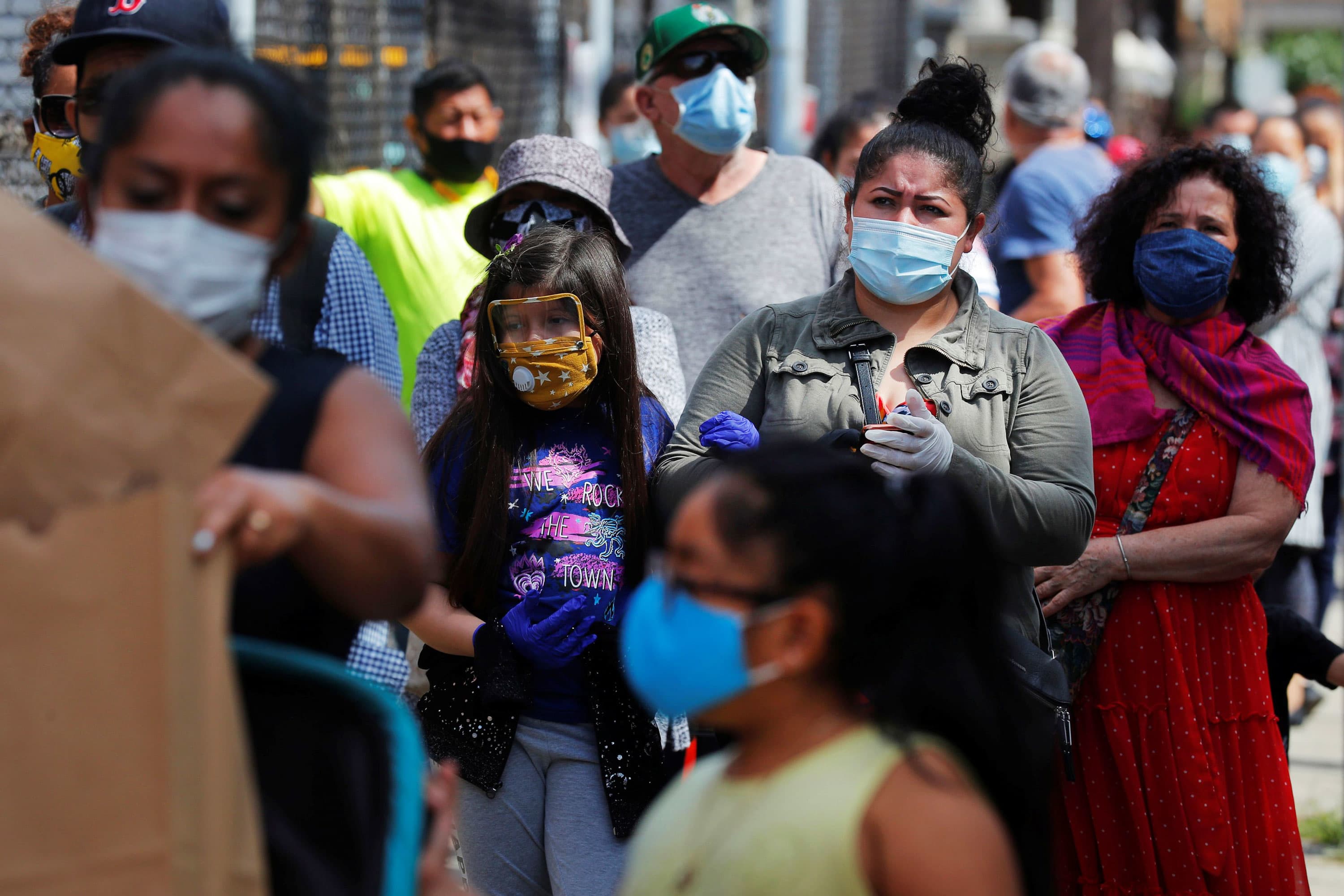The co-CIO of the world’s largest hedge fund told CNBC on Tuesday that the U.S. economy continues to need significant fiscal support in order to sustain its recovery from the coronavirus-induced devastation.
Greg Jensen of Bridgewater Associates said the firm estimates that the price tag for another coronavirus relief bill is between $1.3 trillion and $1.7 trillion in order for the U.S. economy to continue “in the way that it’s been going.”
“And it depends what it’s used for. … The policy that gets directly spent in the economy is much more effective per dollar than the dollar that’s preventing more bad things from happening,” Jensen said in a “Squawk on the Street” interview. “The money for states is going to prevent negatives. The stimulus checks will be direct positives.”
Jensen’s comments come as Republicans and Democrats in Washington continue to squabble over the size and scope of another piece of Covid-19 stimulus legislation while millions of Americans remain out of work and businesses grapple with continued disruption.
Earlier Tuesday, White House chief of staff Mark Meadows suggested Democrats and Republicans were making ”real progress” on negotiations but said aid to state and local governments continues to be the biggest sticking point.
With cities and states facing serious declines in tax revenue as a result of the pandemic, Democrats have proposed nearly $1 trillion in aid. Meadows said that figure was not “based on reality.” Republicans would only be willing to support an additional $150 billion to local governments on top of the $150 billion allocated earlier this year, he said, also on “Squawk on the Street.”
Democrats began negotiations this summer with an overall proposal north of $3 trillion, while Republicans had a starting point around $1 trillion. Last week, the Trump administration indicated it would be willing to support a $1.3 trillion proposal. However, House Speaker Nancy Pelosi, D-Calif., said that roughly $300 billion increase remained insufficient and she continues to urge Republicans to meet Democrats in the middle and craft a roughly $2.2 trillion bill.
Republicans may also introduce a smaller bill, with a price tag around $500 billion, that focuses on areas of bipartisan agreement.
Jensen, whose Ray Dalio-founded hedge fund had about $138 billion in assets under management as of April 30, said the U.S. economy has improved since the nadir of the pandemic. But he pushed back on the suggestion the recovery would persist without additional fiscal assistance, even though there are encouraging signs such as surging bank deposits.
“Too much is being drawn of where the economy is on those things relative to how it got there. If you take away the reason it got there, if you take away the supports to income, you’re going to start to see a downturn at the worst possible time,” Jensen said. ”Yes, there are some winners in the economy and the average looks OK, but there are still huge losers versus those winners, and that’s a big societal challenge,” he added.
Jensen said the U.S. economy has fared better in its recovery compared with global counterparts that did not inject significant amount of fiscal stimulus. Those countries, he said, have had “much different outcomes.”
“You withdraw those supports, it’s a massive tightening to the economy and an unsustainable one,” Jensen said. “One way or the other, maybe we fall into a trap over the next month or two out of politics but over time, that need for a major round of support is going to come.”
For investors, Jensen said the crisis response from global policymakers on both the fiscal and monetary sides will be instructive to watch in the year ahead. He contended that they have embarked on a path of spending and printing money “until they can’t.”
“Longer term they’re going to keep printing and spending until they hit the wall. The wall will be marked by inflation and currency, and so for us, the broader positioning should be consistent with governments printing and spending money until you see problematic inflation,” he said.
“You’ll have the seesaw of politics make it more difficult, but largely you’re eventually going to get spending and printing until you hit that secular turning point where that becomes too inflationary.”
— CNBC’s Tucker Higgins contributed to this report.
